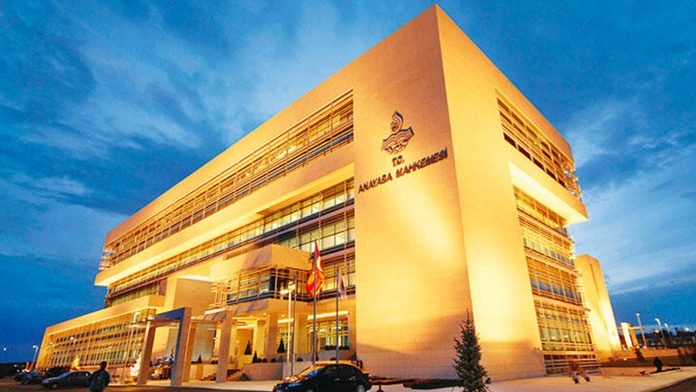Turkey’s Constitutional Court has found no rights violations in the case of a teacher who faced disciplinary action for sharing on social media a 2016 petition jointly released by academics, contradicting its previous ruling that the petition was an exercise in freedom of expression, the T24 news website reported on Tuesday.
According to the report the court has concluded that the teacher’s social media post had the potential of “inspiring ideas that could lead to violent consequences,” finding the disciplinary action “compatible with the democratic public order.”
The applicant, a teacher of philosophy working at a public high school in Ankara and identified only by the initials G.Ş., was given an official reprimand by the school administration after sharing on social media a petition jointly signed and published by hundreds of academics to criticize the government’s handling of armed conflict in the predominantly Kurdish southeast and to urge a peaceful settlement.
The court’s decision contrasted with a previous ruling it delivered in 2019, which had found the conviction of the academics who signed the petition on terrorism-related charges in violation of their freedom of expression.
G.Ş. had taken his case to the Constitutional Court after being rejected by lower courts at all levels.
Delivering its ruling six years after the application was lodged, the top court pointed out that the petition described Turkey’s military operations in Kurdish-majority regions as an intentional and preplanned slaughter and that the post could be influential with others given the applicant’s position as a teacher and civil servant.
Initially signed in early 2016 by 1,128 academics who referred to themselves as “Academics for Peace,” the petition called on the Turkish government to halt operations by security forces in southeastern Turkey, restore peace to the country and return to the negotiating table to restart shelved talks to come up with a peaceful resolution for the Kurdish issue.
The Kurdish issue, a term prevalent in Turkey’s public discourse, refers to the demand for equal rights by the country’s Kurdish population and their struggle for recognition.
The petition attracted widespread criticism from the government. Many of the signatories were fired, sentenced to prison or subjected to overseas travel bans.
In its previous decision, the Constitutional Court had stated that “there is no evidence in the court’s reasoning for judgment beyond the assumption that those who wrote and signed the statement acted on behalf of the outlawed Kurdistan Workers’ Party [PKK]” with regard to the Peace Academics.
The PKK is listed as a terrorist group by Turkey and its Western allies.
After the initial signatories were targeted by President Recep Tayyip Erdoğan, more academics signed the peace declaration in solidarity, with the total number exceeding 2,000.
The signatories were also among the 7,316 academics who were dismissed by executive emergency decrees issued in the aftermath of a coup attempt in 2016. Professors and lecturers from nearly all universities in Turkey were targeted in the government’s post-coup crackdown, which included the Peace Academics.
Despite the top court ruling in their favor as well as a few victories in administrative courts, many signatories are still struggling to return to their jobs or finding an effective remedy for the rights violations they suffered over the past eight years.
Some universities have refused to implement administrative court orders for the academics’ reinstatement, and appeals courts have overturned reinstatement rulings issued by lower courts.
Some of the academics have also been forced to resign or leave their jobs due to the non-renewal of their contracts.
Turkey’s anti-terror laws are frequently criticized by rights groups and international organizations for being overly broad and ambiguous, allowing too much room for interpretation.
Turkey’s post-coup purges also included the mass removal of more than 4,000 judges and prosecutors immediately after the failed coup which, according to many international observers, had a chilling effect on the legal professionals who continued to work in the judiciary.
Erdoğan’s government has also been accused of replacing the purged judicial members with young and inexperienced judges and prosecutors who have close links to the ruling Justice and Development Party (AKP).
In a development that confirmed the erosion of the Turkish judiciary, Turkey was ranked 117th among 142 countries in the 2023 Rule of Law Index published by the World Justice Project (WJP) in late October, dropping one place in comparison to the previous year.
















